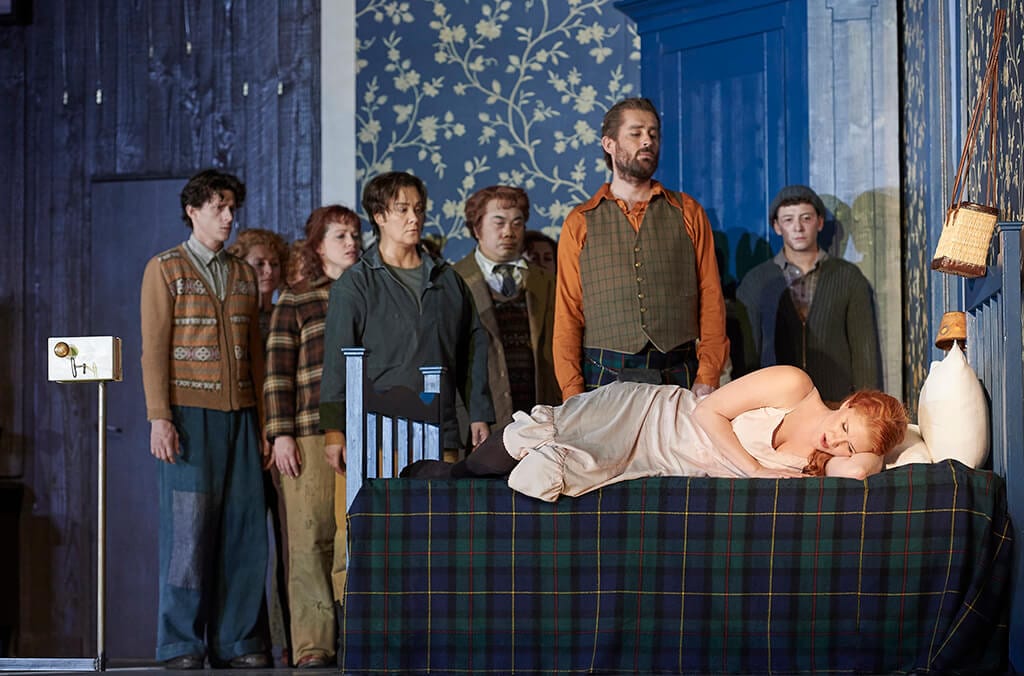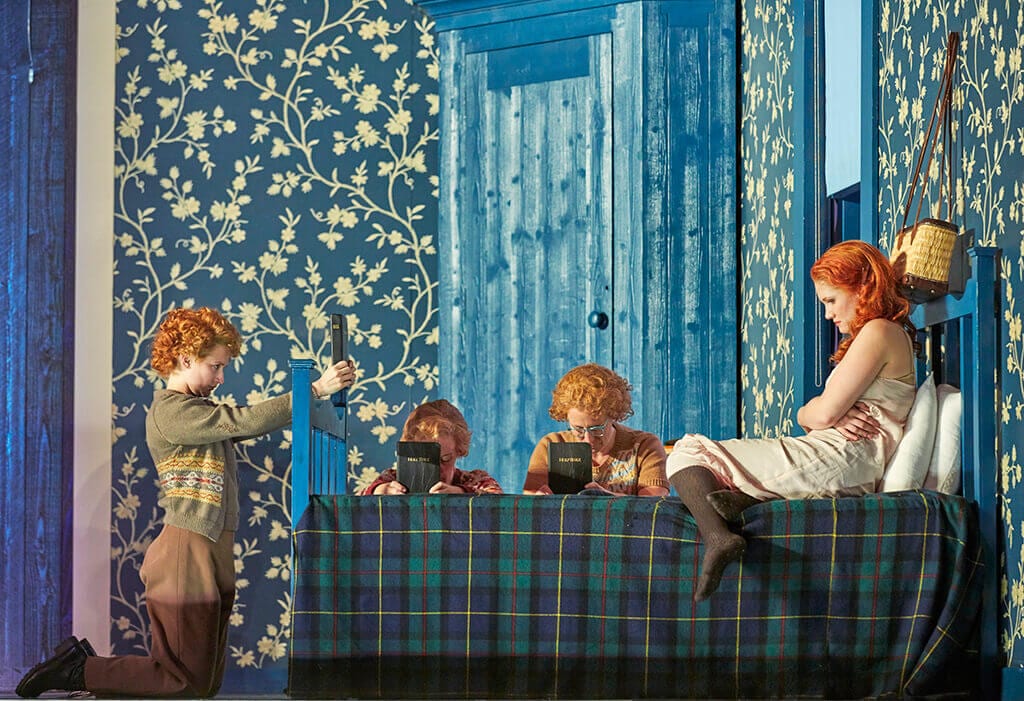There really is only one word that can describe the Canadian Opera Company’s new production of Handel’s Ariodante: Wow.
We’re not talking about high-tech digital gimmicks, elaborately constructed sets and staging, or opulent costume design; if there’s one thing that is crystal clear about this production, it is an almost zen-like minimalism that foregrounds the exquisite talent on stage, and most importantly, provides the setting for a riveting new take on what might have been staged as a highly conventional baroque opera. Ariodante follows the usual storyline of opera seria: sweet young lovers are separated by unforeseen forces, and at the very last minute, when tragedy seems imminent, the dastardly plot to separate them is revealed, the villain dies, and the lovers are reunited. It all ends with peasant, king, and cosmos celebrating the lovers’ union with pomp and pageantry.
Toronto audiences are particularly well-attuned to the nuances of period opera since we have one of the world’s finest companies, Opera Atelier, performing works by Handel, Lully and the other great baroque masters on a regular basis. We know, for example, that a singer’s particular turn of wrist in the course of performing an aria, indicates fury. Perhaps for this very reason, it is somewhat difficult to “wow” us with an unconventionally contemporary performance of baroque opera. But Richard Jones’s new production of Ariodante did that and more.
Jones’s startling choice to set Ariodante in a parochially presbyterian Scottish village of the 1960s certainly reflects the unconventional musical departures that Handel was attempting when he composed the opera in the 1730s. But his choice also unleashes narrative subtexts and dramatic themes that speak to our historical moment in 2016: women’s rights, sexual consent, class barriers, victimhood identity, restrictive ideologies, dysfunctional leadership – all came together to form a chilling portrait of our twenty first century realities, particularly at a time when the most acrimonious presidential race in American history has put women’s issues front and center.
Jones’s revisionist Ariodante does not end happily. He makes it painfully clear that the two women in this story, Ginevra and her maid Dalinda, are locked into abject positions because they are treated as chattel by fathers, brothers and lovers who use, abuse and manipulate them as senseless objects in the grand plot of masculinity. The relentless focus on the skewed nature of gender relations is foregrounded with the stylized rape of Dalinda by the arch villain, Polinesso, and in the chilling puppetry theatre intended to teach Ginvera that her role as a woman is either as wife or whore.
But perhaps the master-stroke of this production is to demonstrate that in a society so riven with misogyny, the struggle to be a decent, respectful man is nearly insurmountable. As I sat through tonight’s performance with my heart breaking for Ginevra and Dalinda, and again, for their lovers Ariodante and Lurcanio, I could not help but hear Michelle Obama’s voice in my ears wondering how the boys of today will grow up to be decent, respectful men; I could not help but wonder how far we have set the clock back as the language of power reduces women to rank sexual objects in a patriarchal discourse. And how will it be possible for today’s young men like Ariodante and Lurcanio to know what it means to be a man when our frames of reference can be so perversely skewed?
Of course, great art has the capacity to bring about great change, but tonight’s production shone forth because it had a cast of superlative talent bringing these stories to our hearts. As Ariodante, Alice Coote, in a pants role, was the epitome of young love: impetuous, self doubting, gawky and passionate, with a powerhouse of a voice that carried off virtuosic flights while never flinching away from the raw drama of confusion and loss central to this character. Jane Archibald, as Ginevra, brought tears to my eyes, the pathos of her situation brimming out of her voice, which at times would take on an unearthly resonance, sounding like an oracle speaking against the madness of our times. Varduhi Abrahamyan, also in a pants role, as Polinesso, was sinister and chillingly violent while demonstrating a vocal mastery that was terrifyingly precise. But for a sheer dramatic and operatic tour-de-force of a performance, Ambur Braid swept us all away with her impossibly broken Dalinda. Braid was so completely within her character on stage, that one could almost not recognize her when she took her curtain call as herself. The rich tenor of Owen McCausland as Lurcanio, and resounding bass of Johannes Wesser as The King of Scotland, brought home the tender, confused, and pathetic visions of men trying to deal with a shifting world (and all of its women) that they could only hope to understand.
The COC opera orchestra blossoms under the baton of Johannes Debus as it does for no other. Debus commands an incredible dramatic range from this orchestra, which remains respectful to period practice. At the risk of using a time-worn metaphor, the first violins wept with Ginevra in Mio Crudel Martoro of Act II of tonight’s performance. It was the COC at its best, with a brilliant cast on stage, an orchestra on fire, and a conductor capable of delivering it all with perfect ensemble precision and a fearless ability to bring this music to the depths of despair through artistic perfection.
Ariodante runs for a full four hours, but I guarantee these hours will be among the very best you spend at the opera, or indeed, anywhere




